Get the most out of Google Chromecast with these tips
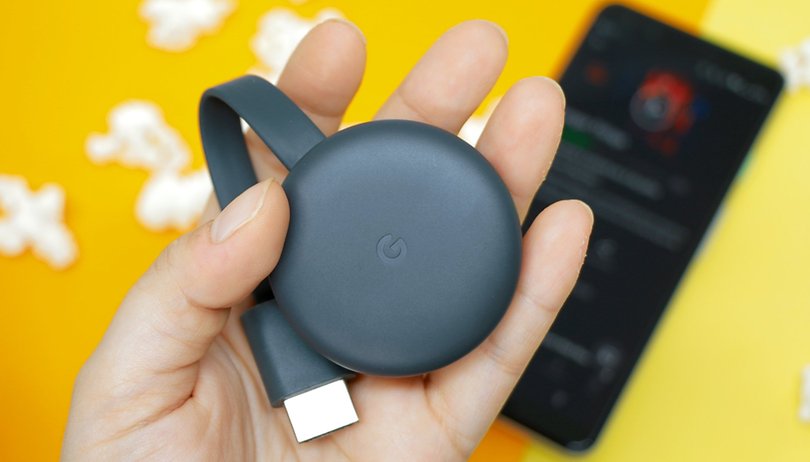

Since it was first released in 2013, Chromecast has been refreshed twice. The 3rd generation is the latest and fastest, and also offers a high-end 4K UHD option on the Chromecast Ultra. The tiny, easy-to-use streaming device can move content effortlessly from your phone or tablet to the big screen, but it also has a number of advanced features. Read on for our Google Chromecast tips and tricks on how to get the most out of the dongle.
Jump to section:
- How to set up Chromecast
- Connect Chromecast to Google Home
- Start the party with guest mode
- Ask about the wallpaper
- Stream audio from Chromecast
- Show off your personal photos
- Connect an Ethernet adapter
- Use Chromecast without Wi-Fi
- Find compatible apps
- Listen privately to your streamed content
- Mirror your Android device screen
- Play multiplayer games on your TV
- Play Google Stadia with Chromecast
- Set up HDMI 50 Hz mode
- Transfer your VR content to your TV
- Reset your Chromecast
How to set up Chromecast
The Chromecast is a little HDMI dongle that connects to an HDMI port on your TV. It requires power to operate, and is charged via a USB port on the back of your TV or by connecting it to a wall outlet (the 4K-capable Chromecast Ultra requires a wall connection for power).
- Begin your Chromecast journey by plugging it into a spare HDMI port on your TV and connecting the charger.
- Switch your TV on and change its input to the same HDMI input that your Chromecast is connected to.
- Once you have connected the Chromecast dongle to your TV, use the browser on your smartphone to grab the Google Home app or tablet to go to the site www.chromecast.com/setup.
- Once downloaded you can then open the Coogle Home app. The interface is similar to all Google applications, you will find the menu by pressing the three dashes at the top left. In there you will see the "devices" option, tap this to scan the network for your Chromecast dongle.
- Once it is discovered, the Chromecast device name will be displayed both on your phone and your TV screen. Tap "set-up" to begin the process and select your country.
- On the next screen you will be asked to verify a code shared between both devices, tap "I see the code" and then name your Chromecast, if you wish.
- The last step is for your wireless router. Select your router from the list and enter the password.
- Chromecast will connect and download the latest software version if necessary. This can sometimes take a few minutes, but after that the installation is complete! Good job.
- Your smartphone now becomes a remote control. The Chromecast application runs in the background and you can use other applications simultaneously without interrupting the video.
Connect your Chromecast to Google Home
If you’ve already got Google Home, you can use your voice to search YouTube or access the weather forecast on your Chromecast-connected TV. It's easy to make Chromecast part of your domestic Google ecosystem.
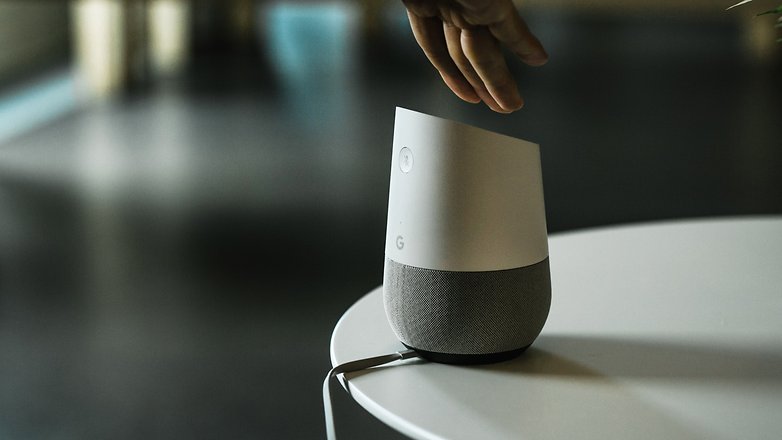
First, check that the two devices are on the same network, then open the Google Home app and go to More settings. From there, select TVs and Speakers to see a list of connected devices. To link the Chromecast to Google Home, just tap the plus symbol in the bottom of the screen and voilà.
Once you've connected your Chromecast with Google Home, you'll want to try out some cool things with voice control, for example:
"OK, Google, pause the [Chromecast name]" or "Hey Google, mute the [Chromecast name]."
If you have your Netflix account linked to your Google Home (Open the Google Home app and check Devices>Settings>More>Videos and Photos>Netflix>Link) you can also just ask Assistant "Hey Google, play 'TV show/movie' on [Chromecast name],"
Start the party with guest mode
Chromecast comes with a guest mode that means your friends can send content to the stick as well as you—as long as guest mode is enabled, anyone on the same Wi-Fi network (in your house, for example) is able to interact with the dongle via a PIN code.
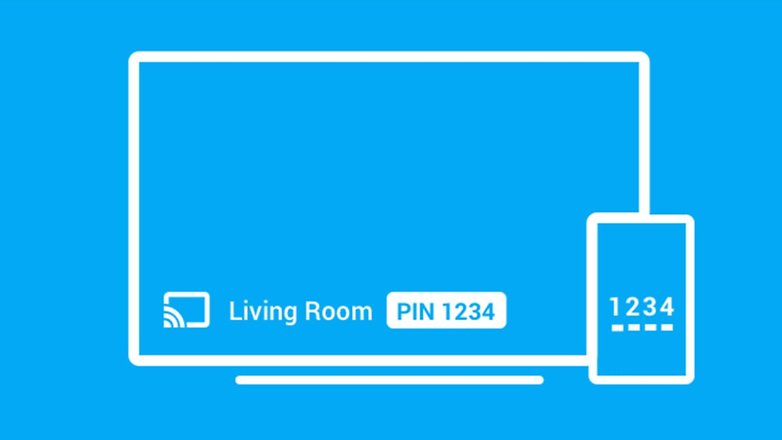
From the Google Home app menu, choose Devices, then the cog icon by your Chromecast, then Guest mode. Slide the switch to On and your friends and relatives can get involved using the provided PIN. Note that guest mode doesn't work on iOS devices yet.
Ask about the wallpaper
When not in use, your Chromecast displays eye-catching pictures from various sources. If you see something you like, open Google search on your phone and ask "what's on my Chromecast?" You can access the same screen from the Devices tab of the Google Home app.
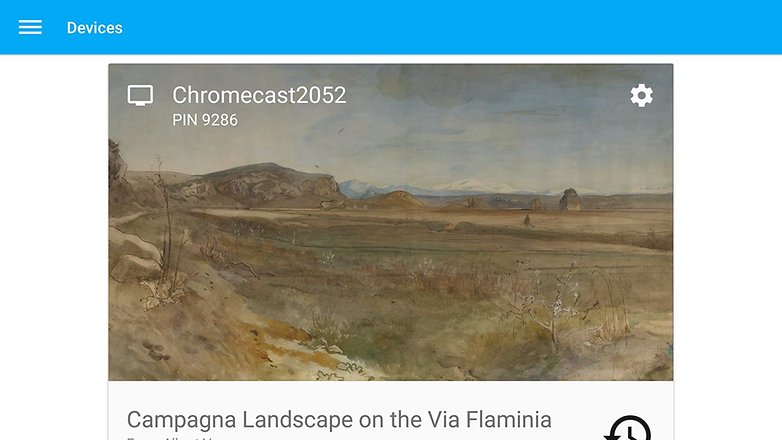
Tap on the view links inside the Google Home app and you can see the source for the picture (Google+ or Google Maps for example) together with the person who posted it (where applicable). You need never ask where a picture has come from ever again.
Stream audio from Chromecast
Many music apps such as Pandora, Google Play Music, and Spotify now offer Chromecast support, making it a great, notification-free alternative to using Bluetooth.
If you have a modern A/V receiver, amplifier, or powered speakers with an optical input, using the Chromecast to stream is as simple connecting an optical cable from your TV’s audio output to your audio device’s optical input.
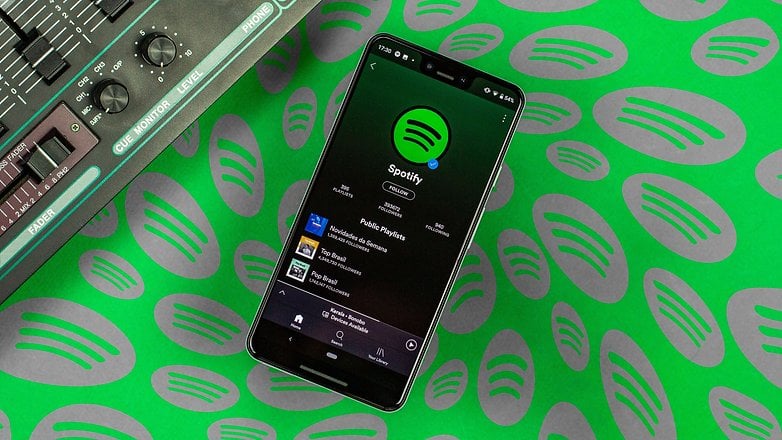
In some cases you may need to enter your TV's sound settings menu and set audio to "external speakers," and select the optical output. This menu is typically found in the settings menu under sound.) If your amplifier is an older device with only analog inputs, you can buy an optical to RCA adapter online and plug it into the RCA input of your sound system.
If you feel your TV isn't quite giving out the sound you want, you could try connecting your Chromecast directly to an HDMI input on your A/V receiver and using your phone as both the controller and the viewing window for your player.
Show off your personal photos
If you don't like the sorts of pictures Google is displaying as part of the Backdrop feature than you can take matters into your own hands and show images from your own collections instead. Tap Devices in the Google Home app then the cog icon by your device.
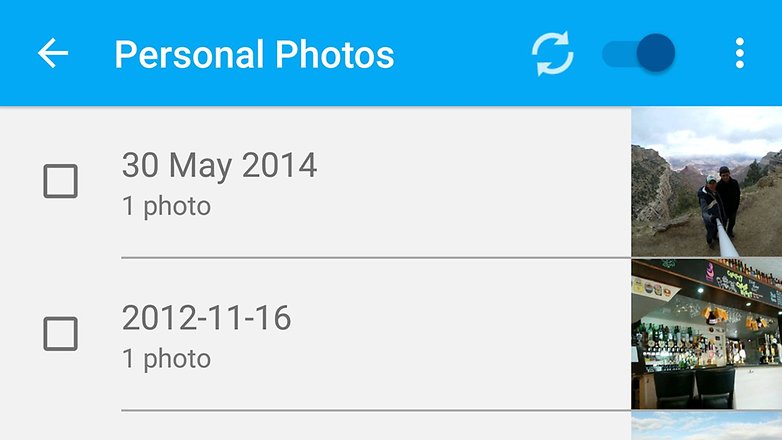
Tap Backdrop and then turn the Personal Photos switch to the on position—you can then select specific albums from your Google account. Depending on how well organized your collection is, you might want to create a separate folder just for Chromecast background images.
Connect an Ethernet adapter
Wi-Fi woes suck, and you do need a good connection to use Chromecast to the fullest. While the Ultra version already comes with an Ethernet port, you can still enjoy the security and speed of a wired connection by buying an Ethernet adapter directly from Google. Perfect if you want to use Chromecast in an area with a weak Wi-Fi signal.
Use Chromecast without Wi-Fi
Chromecast is perfect to pick up and take with you - it was practically created with travel in mind. But what do you do when you can't rely on Wi-Fi? Well, Chromecast doesn't necessarily need Wi-Fi, but it does need internet. Don't worry, there are a few options available.
Two phones are better than one
The simplest way to use mobile data on Chromecast is through two smartphones. Here one device will create a Wi-Fi hotspot over the mobile router. Once you've set this up, just use the second smartphone to set up Chromecast.
The storage option
Google does allow you to cast locally stored content from your Android device to Chromecast without a Wi-Fi connection, thanks to mirroring. You can even mirror to your device without Wi-Fi. For those of you out there with more generous mobile data packages, this means you can stream content over 4G to your phone and mirror it to your Chromecast.
Not only does this save your precious tethering data allowance limits, it also saves you from running around trying to find a mobile hotspot.
Create your own modem
To take full advantage of the 3G or 4G modem on your Chromecast, you'll need to call on the help of a computer. Here again, the trick is using the mobile connection to create a Wi-Fi network that mimics conventional broadband. Chromecast will identify the network, which can be configured and used by a nearby device - connected to the same Wi-Fi or not - or by the PC itself.
The idea is to temporarily turn one of your devices into a router. MacOS and Windows 10 both have native tools that create an internet access point and enable it to function like this.
Use a smartphone
Even if you don't have a PC or a second smartphone, you're still able to connect Chromecast to the internet. However, this option is a little more ingenious. Here you'll need to use a Chromecast that you have previously configured on a known Wi-Fi network. With this network name and password, you need to create an access point on your smartphone using those same parameters. Chromecast will then automatically connect to the Wi-Fi created by your phone.
Find compatible apps
There are more Android apps than you might think that can work with the Chromecast — Google has even created a special page for them so you can find them more easily. The available apps are split up into categories or there's a search box to use instead.
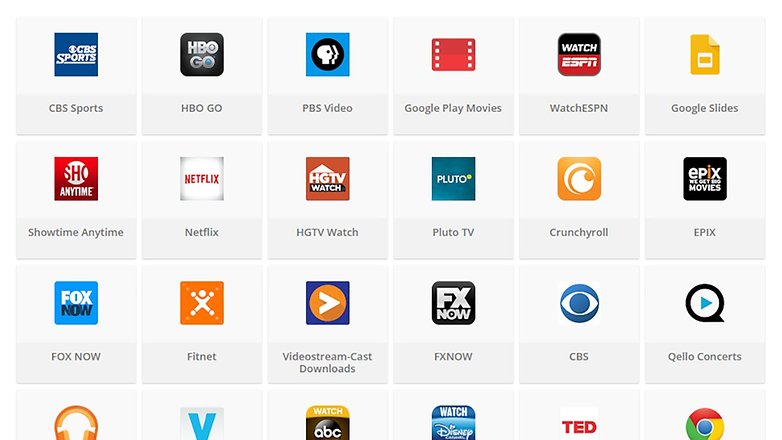
When you're in a compatible app (on Android or iOS) you'll see a Chromecast icon somewhere in the interface that lets you sling the content over to your nearby dongle. In most apps, you can still control playback on your phone or tablet while the content is streaming.
Listen privately to your streamed content
Watching shows or online videos on your television late at night or with busy people around you can be awkward, but don't worry, there's an app for that. Localcast lets you listen to videos you’re casting to your TV through headphones connected to your smartphone, tablet, or whatever Android device you may be casting from.
To do this, just install and open the app, connect a pair of headphones, and select the Route audio to phone option on the Now Playing screen. Now you can listen privately and discreetly to your casted content
Mirror your Android device screen
On compatible Android devices, you can send a live stream of your device's screen up to the Chromecast — it's a great way of showing off some of your favorite photos or playing a game on a larger display if the app doesn't support casting natively.
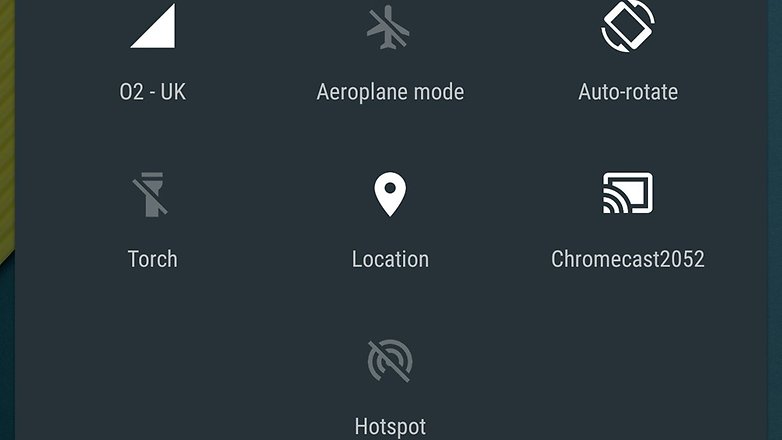
From Settings head into the Display menu and tap Cast screen. All you have to do then is choose the Chromecast in question to see your display mirrored up on the device the dongle is connected to.
Play multiplayer games on your TV
LAN parties are so '90s, but you can still have fun playing video games locally with friends. Using Chromecast, you can turn any party into a multiplayer gaming session on the big screen. In fact, with the popularity of Chromecast, many games have incorporated special modes just for this kind of activity. To get started, check out our recommendations for best mulitplayer games for Chromecast.
Play Google Stadia with Chromecast Ultra
If you bought the Stadia Founder's or Premium Edition you will already have a Chromecast Ultra that is ready for Stadia, Google's game streaming service. To add your Stadia account to Chromecast, grab your controller and make sure your phone, Chromecast, and controller and all connected to the same Wi-Fi. From there, use your controller to enter the linking code in the top-right of your screen. You can find the linking code in the Google Home app if you don't see it initially. Follow the steps below:
- Select the Chromecast.
- Tap Device settings in the top right corner.
- Go to Ambient Mode and scroll down to the Stadia Controller Linking Code section.
- Tap Show. The linking code should show up on the TV screen.
After you add your account you'll be asked to create a four-digit security PIN. This is in case you don't want other members of your household using your Stadia account.
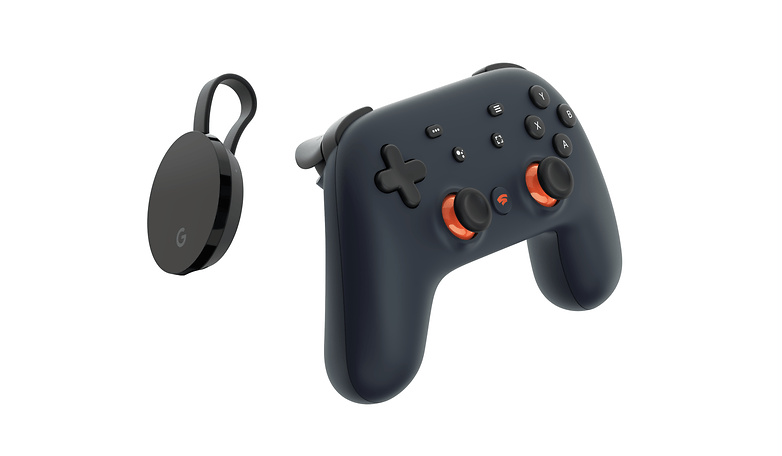
Set up HDMI 50 Hz mode
You can configure Chromecast to operate in 50 Hz HDMI mode rather than automatically selecting the default option. This is a great way of avoiding issues with jittering or stuttering when you view programs live, and is great for travel as the 50 Hz frequency is very common in Europe and Asia.
- Make sure your phone or tablet is connected to the same WiFi network as your Chromecast device, and that the phone you're using is the same one you used to set up the device on your TV.
- Open the Google Home app on your Android device.
- In the upper-right corner of the app's Home screen, tap Devices to see the list of available Chromecast devices.
- Scroll to find the device card for the Chromecast you'd like to use with the 50 Hz mode.
- In the top-right corner, tap on the device card menu (the three dots) > Settings.
- Scroll down and select Screen.
- To activate, simply tap on the Use 50 Hz HDMI mode option.
Once you've set everything up it will be applied to your Chromecast. If it doesn't appear to work immediately, restart your phone and then try streaming again.
Transfer your VR content to your TV via Chromecast
Thanks to smartphones, Virtual Reality has come a long way in the past year or so. That said, the VR experience is a difficult one to share so it does have its limits. That said, you can always transfer your VR content to your TV via Chromecast. To do this, in addition to having obvious things like a smartphone, TV and Chromecast, you'll also need a compatible VR headset like Google Cardboard, Google Daydream View or Samsung Gear VR.
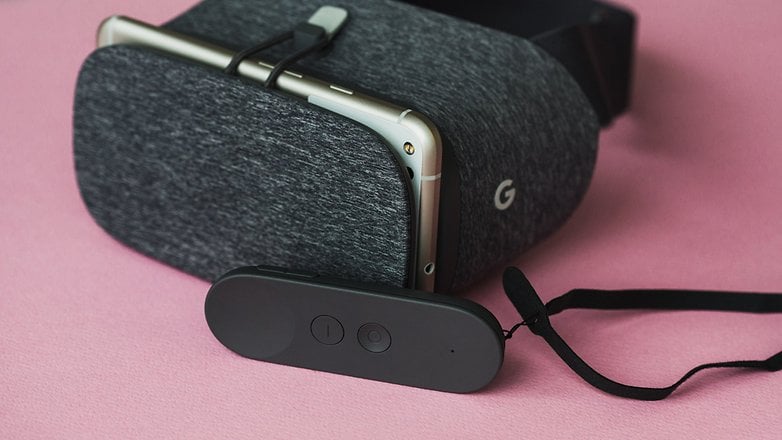
Here again, Chromecast and Android smartphone will both need to be connected to the same network. To get started, open the Google Home app. Then open the Home app’s menu by sliding in from the left side. From there, choose Cast screen/audio. This will bring up the screencasting page, so just tap on the “Cast Screen/Audio” option and then select your device.
After this, anything that is happening on the home screen for your smartphone will show up on the TV. All you need to do now is just move around normally: everything will work you would always expect it to, except now everything on your phone can also be seen on the TV.
Reset your Chromecast
Chromecast is such a simple device that you shouldn't run into any problems with it, but if you do find it's behaving erratically or not as you expect, then a reset is likely to get everything working again. You can reset the dongle from the Google Home app on Android.
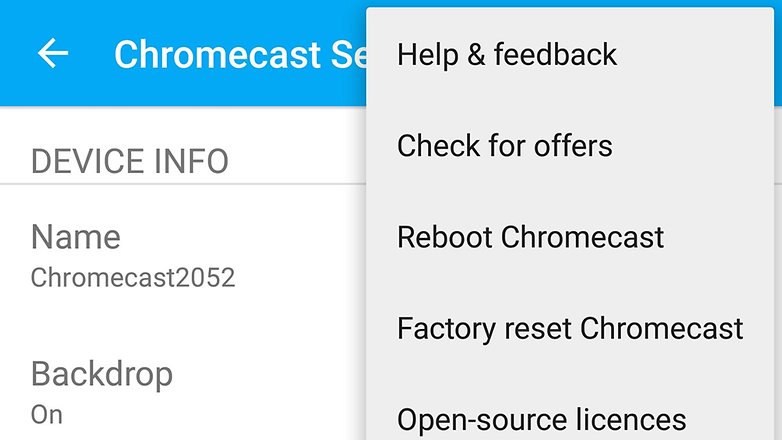
Head into the Google Home app, choose Devices, then tap the cog icon next to your Chromecast device. Tap the menu button (three vertical dots in the top right corner) and you can choose to reboot your Chromecast or run a factory reset and start from scratch again.
Which trick is your favorite? Do you have any tips we should add to the list? Let us know in the comments.






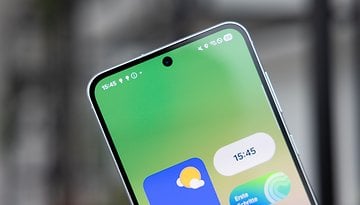
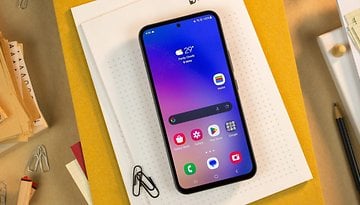
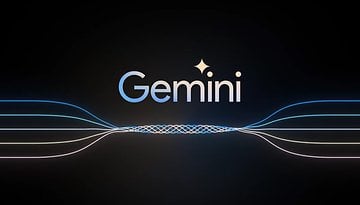








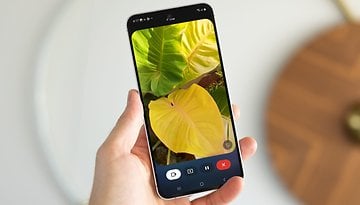


I use Chromebooks for years and with a Chromebook everything on the screen can be casted to my TV with my Chromecast, connected by WiFi. Even the local cast is possible and I use it every day.
With my Android smartphone and Google Home no problem neither. In fact I had never used the smart TV options of my TV because it's much more practical and quicker with a smartphone and a Chromecast.
The only problem I get with the smartphone and my Chromecast is the local cast which doesn't work with the Android app you mentioned.
So, If the film is really noisy, I use my Chromebook with just headphones.
Thanks to the Chromecast, and to the Chromebook, it's now possible for me to watch Netflix, Molotov TV, Amazon Prime video in great conditions.
P.S
There is a problem with your text editor. When I edit the text, it keeps the old edition.
Some really great tips for Chromecast, which I've been using for a couple of years, an amazing little device that's really transformed my TV, love the ability to display my own photos.
didn't know about Dashboard Cast which looks cool and very useful... going to check that out right now..